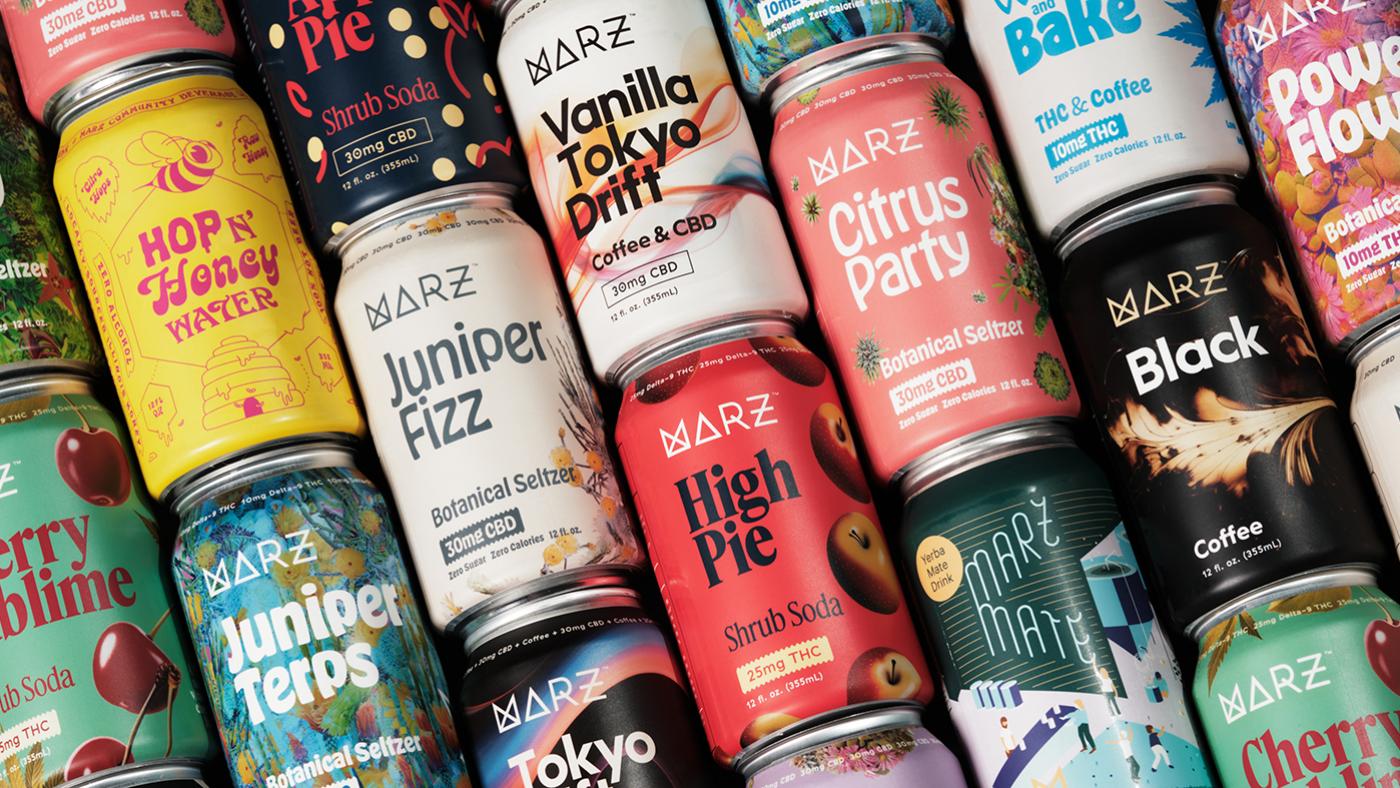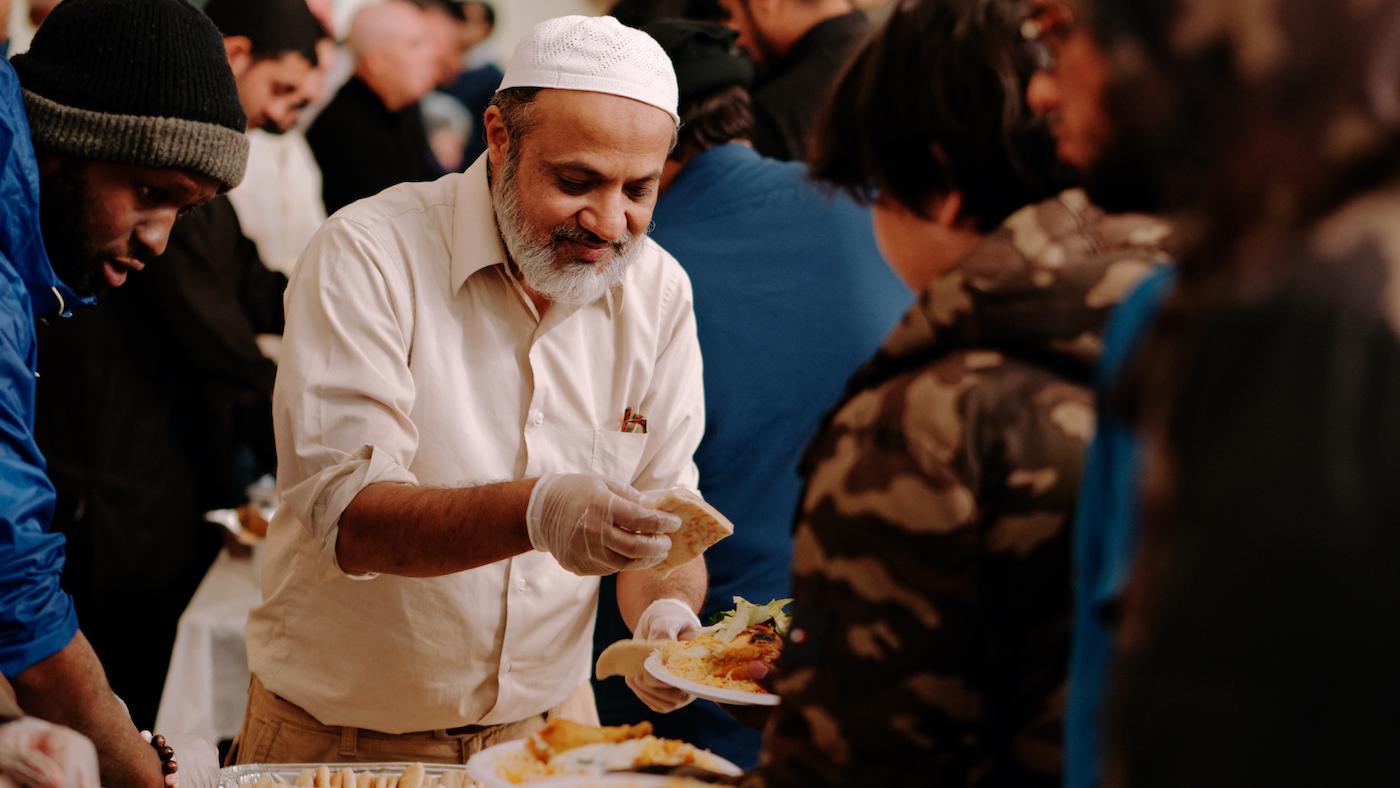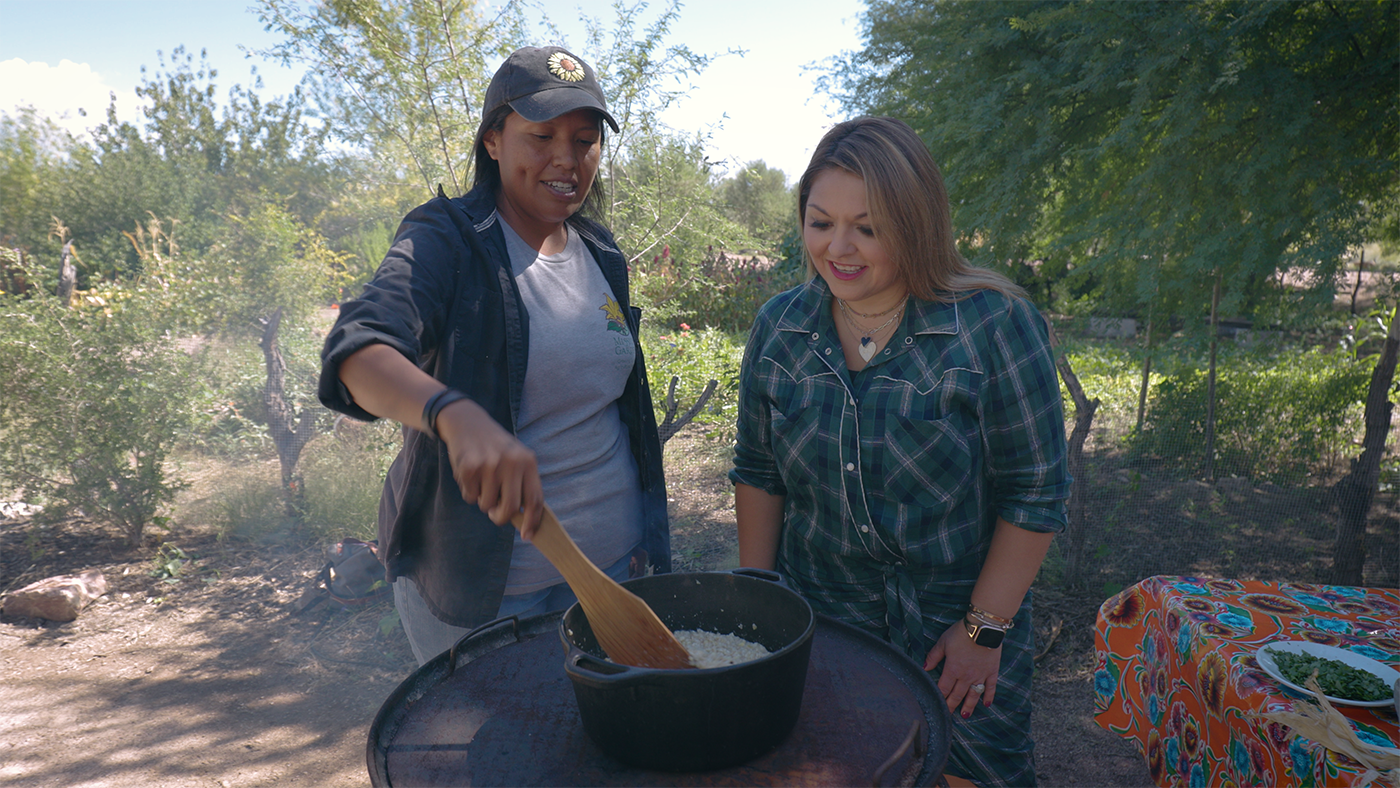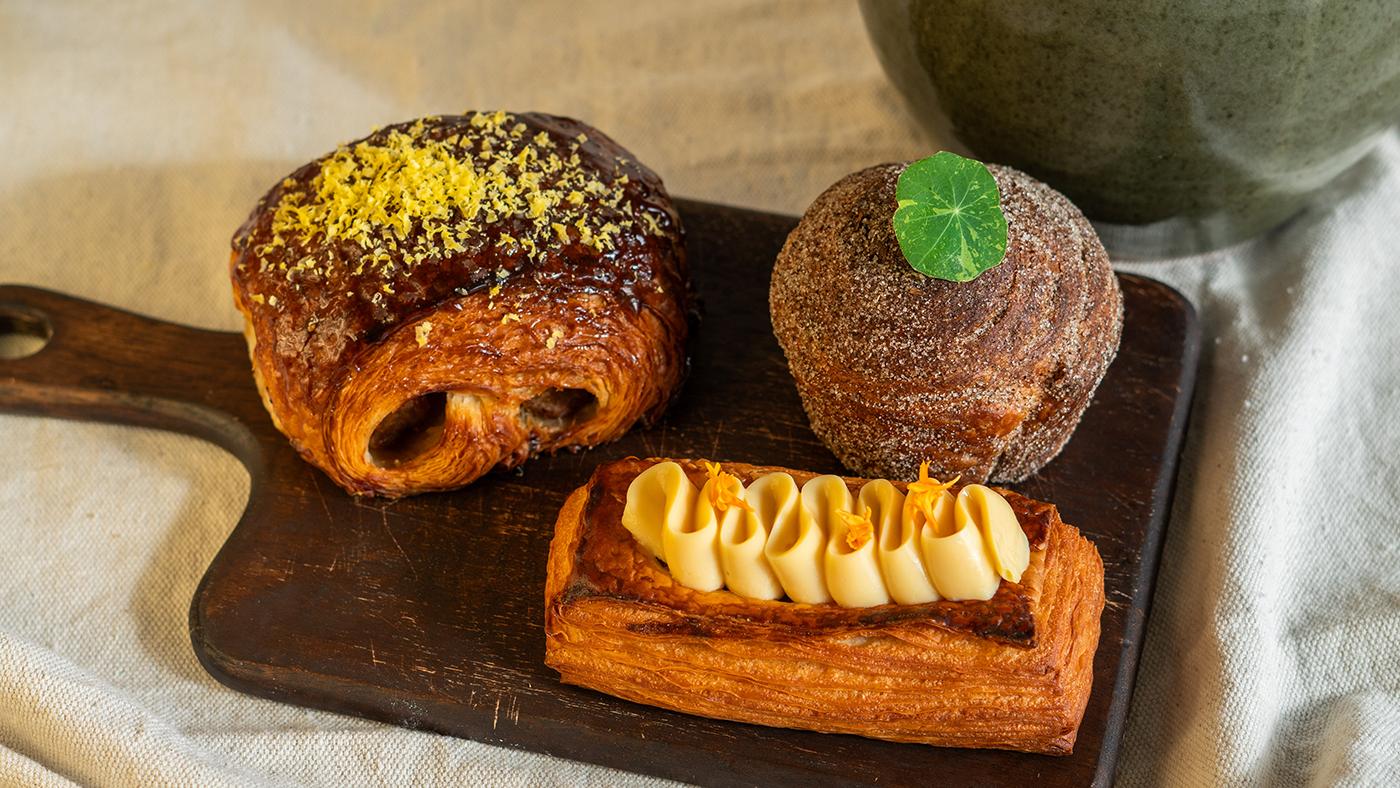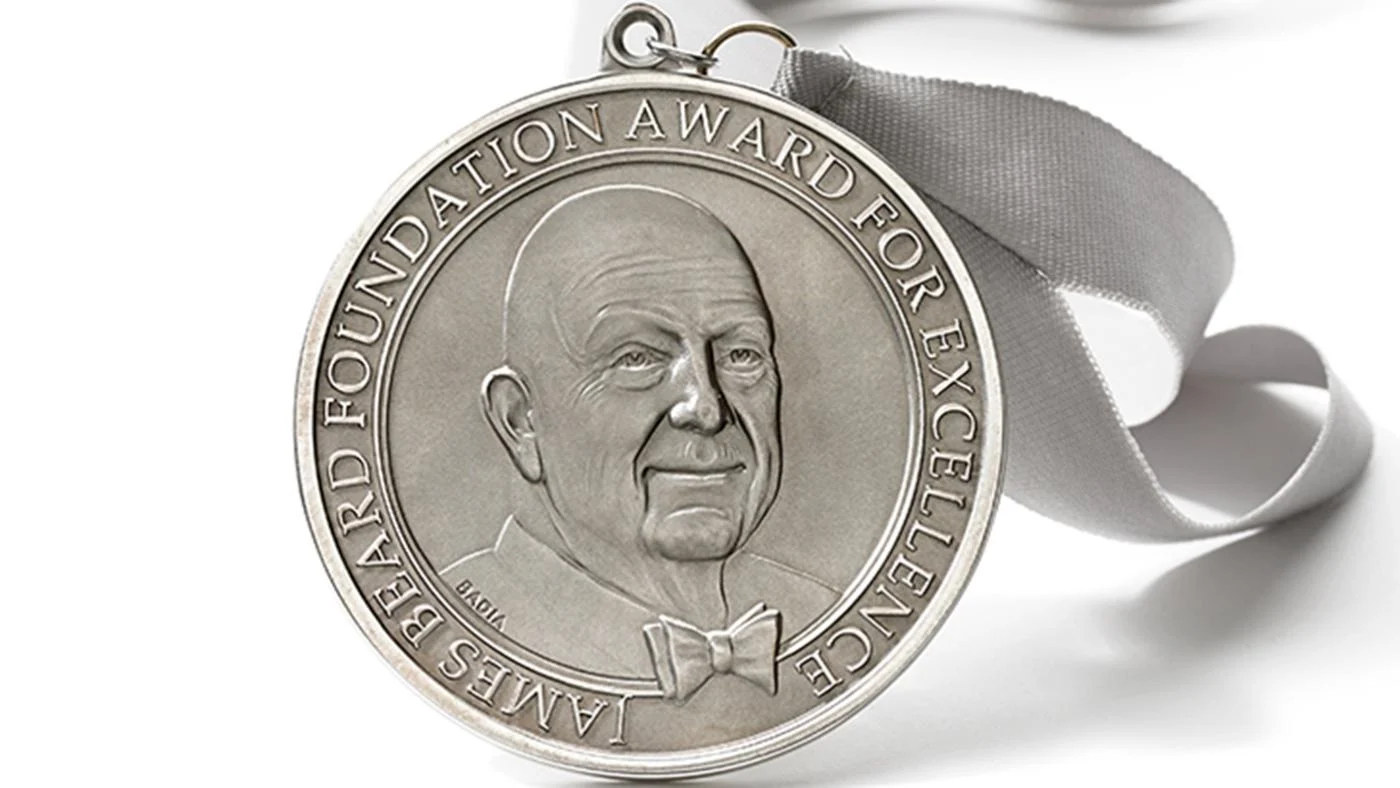Contestants Compete to Make the Best Mac ‘n’ Cheese, Delving into American History, in a New Opera
Daniel Hautzinger
May 9, 2023
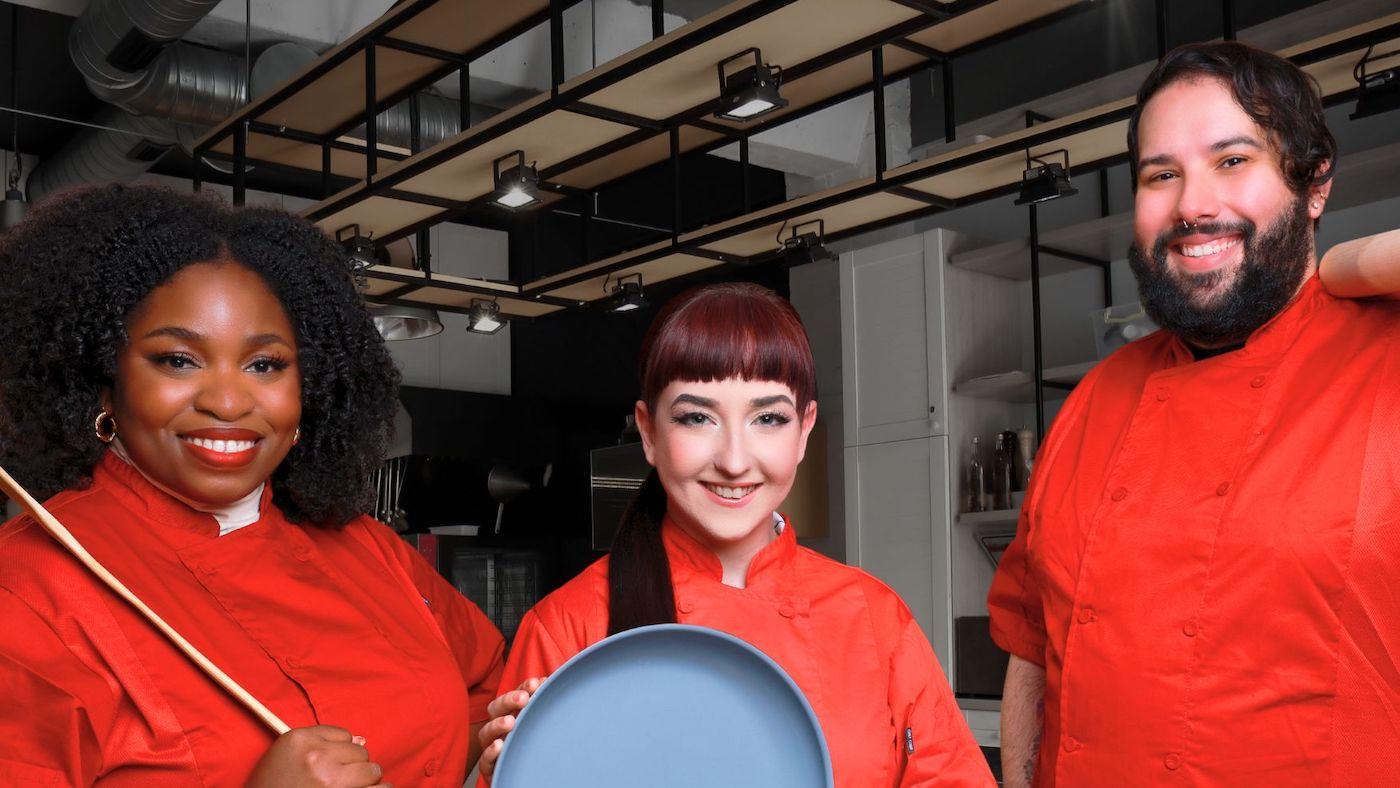
Get more recipes, food news, and stories by signing up for our Deep Dish newsletter.
Learn more about The Cook-Off in an in-depth interview with composer Shawn E. Okpebholo by our sister station WFMT.
What’s your favorite form of mac ‘n’ cheese? Is it a gourmet version with nine cheeses? One with its flavor deepened by chipotle? Or just a straightforward, platonic ideal of the dish?
On America Loves Food, the wine-guzzling critic Beryl Bennett—author of such books as Pardon My Pimiento and Gravlax, Gravy, and Grasshoppers—must crown a winner from amongst these three recipes, naming “the creamiest, the crunchiest, the dreamiest, the munchiest” of them while the product-peddling host Kenny Kincaid blusters his way through the cooking competition show.
Plus, everyone sings while they cook—and judge, and host, and do anything. That’s not some absurd restriction to make the show more enticing but because this is a new, one-act comic opera called The Cook-Off that’s premiering in a semi-staged production by Chicago Opera Theater on Thursday, May 11 at 7:30 pm at the Athenaeum Center in Lakeview. A mac 'n' cheese tasting will be held after the performance, with attendees voting for their favorite and guest judge Ina Pinkney announcing the winner.
“I’m a foodie. I love food,” says Shawn E. Okpebholo, the composer of The Cook-Off.
“Shawn came to me with the story of James Hemings and macaroni and cheese,” Mark Campbell, the librettist, recalls. That story, which Okpebholo learned from the Netflix series High on the Hog: How African American Cuisine Transformed America, is about James Hemings, a slave owned by Thomas Jefferson who served as the future president’s chef and learned to make macaroni and cheese in France while Jefferson was stationed there. Hemings introduced the now quintessentially American dish to the United States—although Jefferson sometimes receives the credit.
Campbell built a reality food show with that story at its heart, having the host Kincaid continually trumpet Jefferson’s role despite one of the contestants’ objections that he’s getting the history wrong and erasing the contribution of Hemings.
And the opera was born.
Except it wasn’t that easy—writing an opera is not simple. “There are just all the art forms that come together, it’s super collaborative,” says Lidia Yankovskaya, the music director of Chicago Opera Theater. “There are just so many elements involved behind the scenes.”
That’s why Chicago Opera Theater’s Vanguard Initiative exists: to shepherd composers who have not yet written an opera but “already have their own compositional voice,” in Yankovskaya’s words, through the daunting process.
Okpebholo is an acclaimed composer—a recent album of his music was nominated for a Grammy—and a professor at Wheaton College-Conservatory of Music outside Chicago who has written plenty of vocal works, but not an opera. Through the Vanguard Initiative, he was paired with a lauded librettist, Campbell, whose operas have won both a Pulitzer and Grammy. Okpebholo got to work with and write for specific singers and take part in the rehearsal process from the beginning to the end, as well as observing planning and board meetings to learn about what must happen before an opera is even added to a season.
“I have to think about costumes. I have to think about lights,” Okpebholo says of the specific challenges of writing an opera. If he writes a gorgeous interlude, he has to envision what is happening on stage during it.
“The way we’re creating [American opera] is thinking about theater,” says Campbell, who has written over forty librettos. “Music will always win in opera, but a composer these days does have to justify thirty measures [of music] for a crossover on stage, which is fabulous. I love these situations as the librettist, because I would rather that they see it happening in rehearsal and everyone’s just sitting around like, ‘What do we do with this?’”
It's “learning opera by immersion,” says Okpebholo.
As a self-described extrovert, Okpebholo says he loved that immersion, and the ability to collaborate with so many different people. And, as a composer whose work often deals with topics such as police brutality and slavery, he relished the opportunity to write something lighter, a comedy—although racism isn’t absent from The Cook-Off, with its whitewashing host who condescends to a Mexican contestant and steamrolls over a Black contestant’s attempts to talk about Hemings.
“This opera was written very much in reaction to what is going on in Florida, where Black history is being erased by taking books off bookshelves,” says Campbell. “Yes, it’s a comedy, it approaches it in a light way—but humor often comes from really dark and angry places. And part of that is certainly the music. I think Shawn has done an incredible job of making us empathize with all three of [the contestants].”
Each contestant has their own story, and their own reason for wanting to win, expressed when time freezes and they step forward for an aria, just like in A Chorus Line or The 25th Annual Putnam County Spelling Bee, as Campbell points out. Ivy Sweet has tried to escape and hide a poor childhood growing up in a trailer in Tallahassee. Kendra Smith honors the legacy of her aunt and soul food in her Birmingham restaurant. Álvaro Mendez is a shy Mexican immigrant who wants to turn his food truck into a brick-and-mortar restaurant.
“We all have stories. We all love food,” says Okpebholo. “Different stories can be expressed by something that we can all bond over, which is food. And who doesn’t love mac ‘n’ cheese?”

